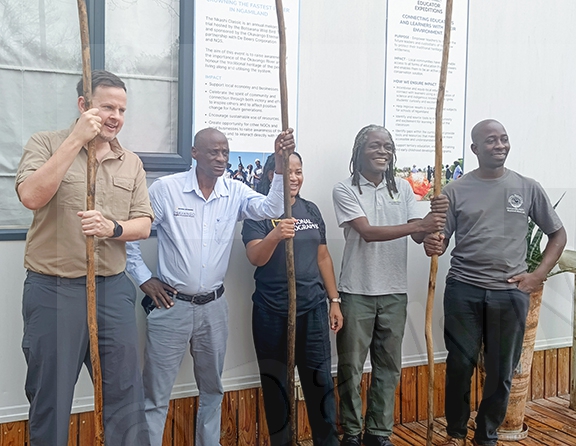Palliative care improves quality of life
19 Oct 2015
All should have access to basic health services, including palliative care, says World Health Organisation representative, Dr Tebogo Madidimalo.
Speaking at the World Hospice and Palliative Care commemoration day in Kasane, Dr Madidimalo said palliative care improves the quality of life of patients facing problems associated with life threatening illness.
“It prevents and relieves suffering through early identification, correct assessment and treatment of pain and other problems, whether spiritual, psychosocial or physical,” said Dr Madidimalo.
He noted that palliative care uses a team approach to support patients and their caregivers.
“This includes addressing practical needs and providing bereavement counselling. It also offers a support system to help patients live as actively as possible until death,” he said.
He listed barriers to palliative care such as lack of awareness among policy makers, health professionals and the public about what palliative care was and the benefits it could offer patients and health systems.
The other barriers, he said, were beliefs about death and dying, misconceptions about palliative care that it was only for patients with cancer, training on palliative care for health professionals and access to opiod pain relief which fails to meet international conventions on access to essential medicines.
He also commended Botswana for having made steps towards provision of palliative care services, adding that awareness creation and community education was visible as evidenced by the commemoration. He added that training sessions have also been conducted to equip health care workers on palliation services.
Giving a testimony, Ms Kahundu Kokore explained how she was a home based care volunteer before she fell sick.
“Some of the home based caretakers, together with the hospital specialists took good care of me, they visited me and talked to me and this lifted my spirits,” she stated.
She said she was sick but emotionally and psychologically fit because of the support offered by home based caretakers.
After getting well, she continued volunteering and vowed to continue helping those who were sick the way she was taken care of.
For his part, a public health specialist from the Ministry of Health, Mr Bornapette Nkomo said to ensure that all those needing palliative care services have access to it, the ministry was maximising care to all patients through training health providers, ensuring availability of palliative care medicines, identification of eligible patients including children and provision of access services throughout the country.
He said palliative care should be made available to everyone regardless of their age, race, gender, disease, sexuality or where they live.
Dr Nkomo said in palliative care no one should be invisible as there were hidden patients with hidden lives for whom the need for palliative care was not recognised.
It is estimated that every year over 20 million children globally benefit from palliative care.
“The involvement of the community cannot be over emphasised as they play a pivotal role in identifying patients, referring and assisting in delivering palliative care services,” he said. Ends
Source : BOPA
Author : Gothusang Gasetime
Location : Kasane
Event : World Hospice and Palliative Care Commemoration
Date : 19 Oct 2015





